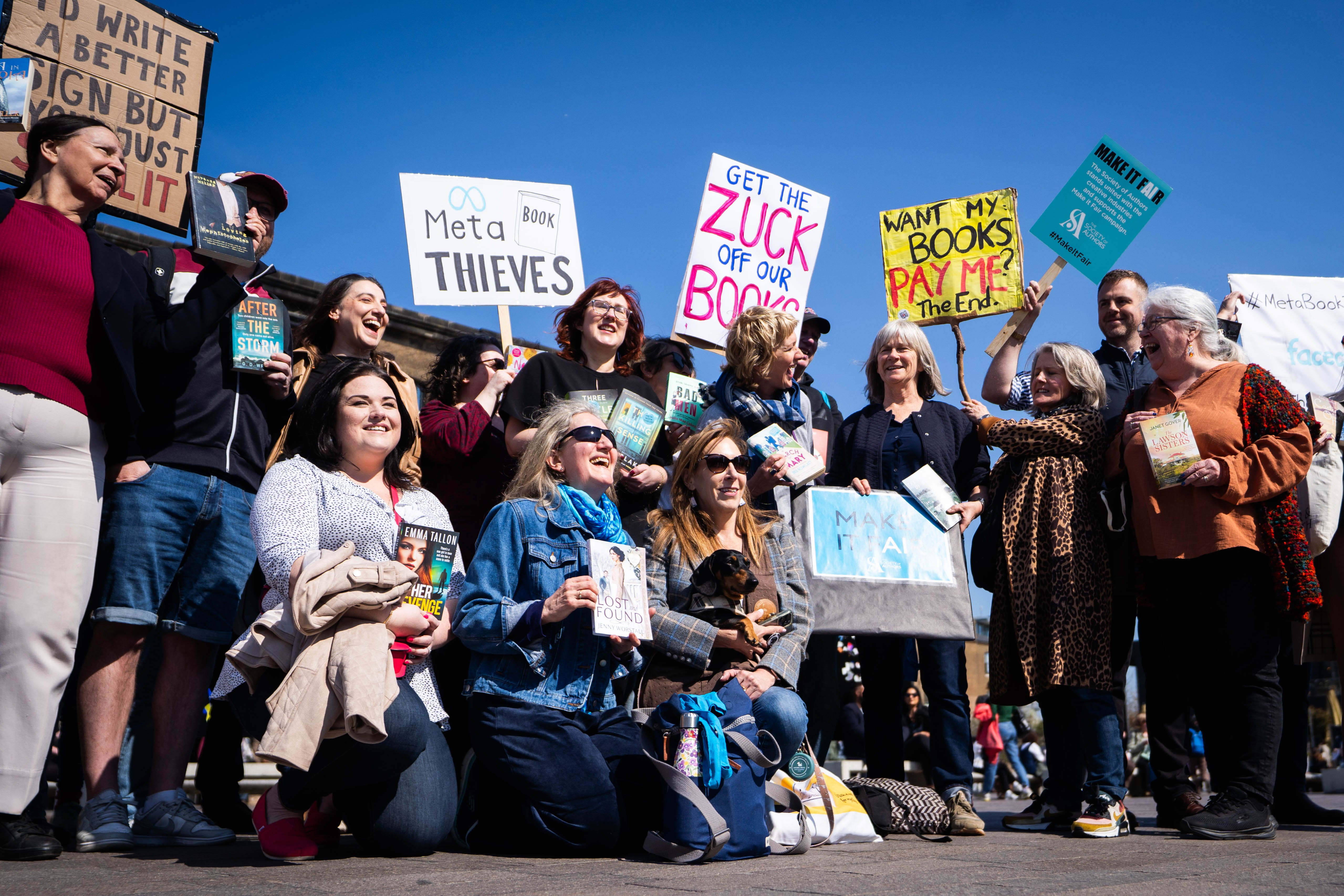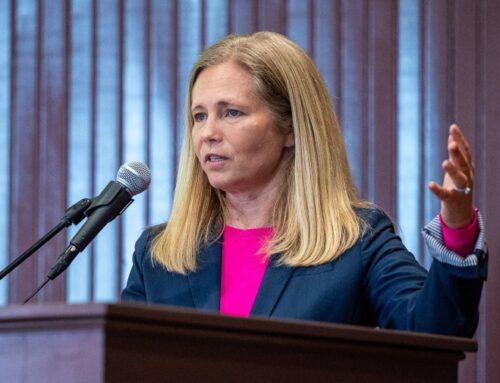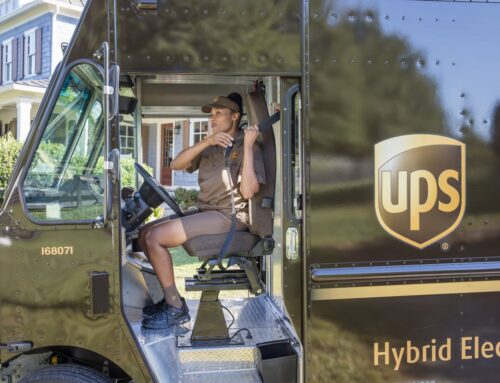Why I – and other bestselling authors – are protesting outside Meta today
April 3, 2025
Over the last few days you may have seen images posted by your favourite authors of their books listed on the Library Genesis (LibGen) “shadow library.” While libraries in general are excellent, LibGen is no such thing. It is a pirate site that has taken our books and put them online for people to read for free.
At the Society of Authors, we have long suspected that these pirate sites are being used to train AI machines. The machines, called large language models or LLMs, are fed millions and millions of texts, which are then used to create content on AI sites like ChatGPT, Claude and others.
It has recently emerged that Meta, the social media giant behind Facebook, WhatsApp and Instagram, scraped our books from LibGen, where they were already illegally hosted. Millions of books have been taken. Your favourite authors are very likely represented there. Meta argued that it made “fair use” of the books in developing its LLM, LLama, arguing that a class action suit brought by authors including Ta-Nehisi Coates and Sarah Silverman should be thrown out. Court documents show that Meta considered signing licensing agreements with authors and publishers but decided the process would be “incredibly slow” and “unreasonably expensive,” so instead, they just stole our work.
Meta argued that it made “fair use” of the books in developing its LLM, LLama, arguing that the lawsuit from authors including Ta-Nehisi Coates and Sarah Silverman should be thrown out.
That’s great, you might think, I love books, and free is my favourite price. But simply put, taking our rights without our consent and without paying us is stealing. Copyright is what allows every author to earn money from their work. They can license some or all rights by, for example, allowing a publisher to handle book rights. Those deals are how authors earn a living. Forget the big names: author earnings average around £7k a year.
Making a living as a creative is not easy. Most of us have to supplement our writing income with side hustles like teaching, school visits or part-time jobs. I know a number of authors who have had to give up writing because it doesn’t pay the bills. Despite the more than £125bn that creative work brings to the economy, it’s often publishers, TV companies or other buyers of the licences that are making the real money, not the actual creators.

This theft by Meta is doubly heartbreaking. Creative work is so personal. When we write, we are really saying, “I found this sad, interesting, delightful – do you?” It’s soul-destroying to see books that we have spent years on, books where we poured out our hearts, crafted an incredible plot or chewed the end of our pencil until we thought of the perfect joke, just being stolen.
What Meta wants for its AI machine is the very thing that makes up our writing voice. There are no new ideas. It’s how we write that’s important. If you gave a story about a mouse going to space to Sophy Henn, to Jenny McLachlan, to Sarah Crossan, to Dorothy Koomson, to me, we’d each come up with something different. Voice, pattern and word choice are what makes writers write about the same topic in different ways. In stealing our voice, Meta has stolen part of our essence, our very writer-ness.
We want the government to do more. Lisa Nandy, the Culture Secretary, has been completely silent on this issue, which is why more than 12,000 authors, including Richard Osman, Joanne Harris and Sir Tom Stoppard, have signed a petition asking her to hold Meta and similar companies to account. We want proper regulation. We want them to promote and enforce the already existing and well-performing licencing system where we are asked for consent before our work can be used by wealthy corporations.
And you want the government to do more too. Imagine spending a week without art. We all know what got us through in lockdown. We watched hours of TV and films, read recipes and books, and listened to music. Without all that, life would be pretty joyless. Creative work will only be for the wealthy and we already have a diversity problem in the book world.
This is why I and my fellow authors are protesting today. We feel helpless to stop this onslaught, and we are worried that the government is moving ahead with changes in the system that will make it even worse. Their proposed “opt out” scheme would place the burden on the creator to spot unlicensed use of their work and retrospectively refuse consent – this would also be meaningless as material ingested by an AI system cannot be removed from the system.
Please help us. Share posts on social media. Write to your MP. Sign the petition. And, if you want books for free, please go to a real library. Every time you borrow a book, authors get around 11p. That’s fair for everyone.
Abie Longstaff is the author of more than 50 children’s books and Chair of the Children’s Writers and Illustrators Group at the Society of Authors
Search
RECENT PRESS RELEASES
Related Post



